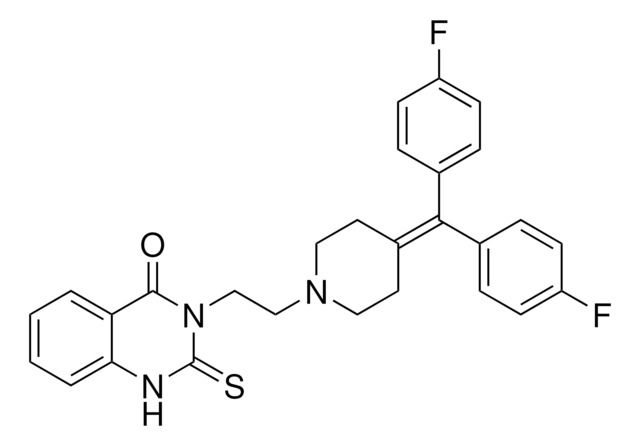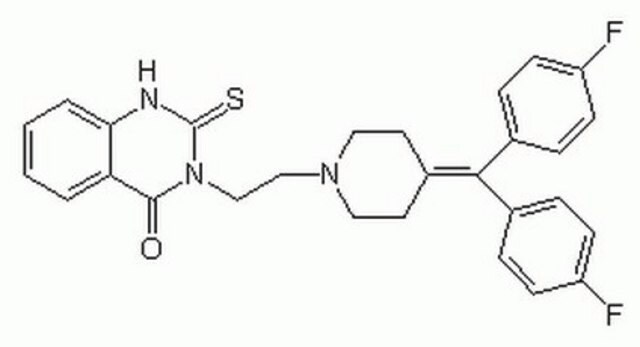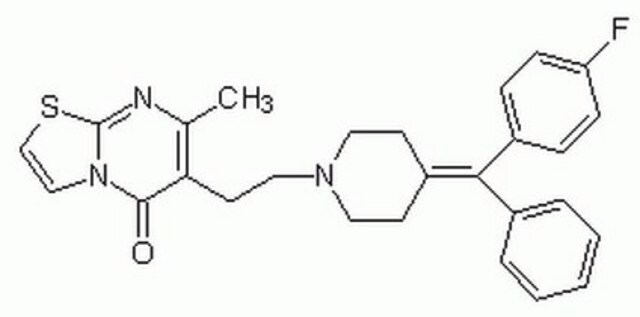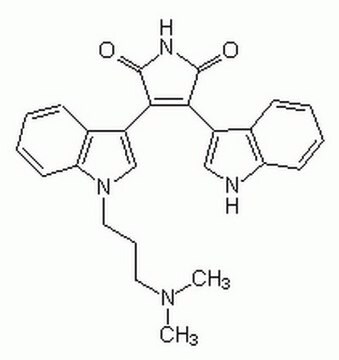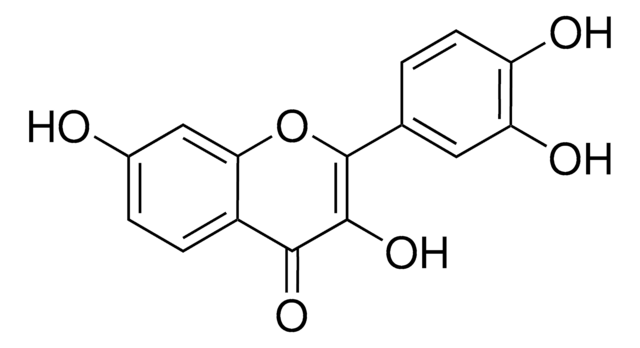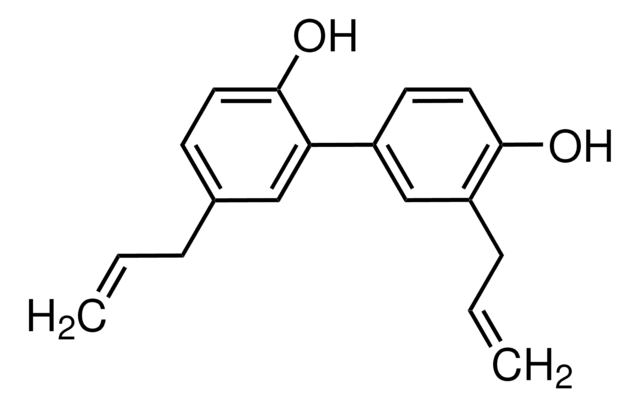D5919
Diacylglycerol Kinase Inhibitor I
solid
Sinónimos:
6-[2-[4-[(4-Fluorophenyl)phenylmethylene]-1-piperidinyl]ethyl]-7-methyl-5H-thiazolo-[3,2-a]-pyrimidin-5-one, R59022
About This Item
Productos recomendados
origen biológico
synthetic (organic)
Análisis
≥98% (HPLC)
formulario
solid
color
pale yellow
solubilidad
0.1 M HCl: slightly soluble
0.1 M NaOH: slightly soluble
DMSO: soluble
H2O: insoluble
ethanol: soluble
ethyl acetate: soluble
temp. de almacenamiento
−20°C
cadena SMILES
CC1=C(CCN2CCC(\CC2)=C(\c3ccccc3)c4ccc(F)cc4)C(=O)N5C=CSC5=N1
InChI
1S/C27H26FN3OS/c1-19-24(26(32)31-17-18-33-27(31)29-19)13-16-30-14-11-22(12-15-30)25(20-5-3-2-4-6-20)21-7-9-23(28)10-8-21/h2-10,17-18H,11-16H2,1H3
Clave InChI
MFVJXLPANKSLLD-UHFFFAOYSA-N
¿Está buscando productos similares? Visita Guía de comparación de productos
Descripción general
Aplicación
Acciones bioquímicas o fisiológicas
Código de clase de almacenamiento
11 - Combustible Solids
Clase de riesgo para el agua (WGK)
WGK 3
Punto de inflamabilidad (°F)
Not applicable
Punto de inflamabilidad (°C)
Not applicable
Equipo de protección personal
Eyeshields, Gloves, type N95 (US)
Certificados de análisis (COA)
Busque Certificados de análisis (COA) introduciendo el número de lote del producto. Los números de lote se encuentran en la etiqueta del producto después de las palabras «Lot» o «Batch»
¿Ya tiene este producto?
Encuentre la documentación para los productos que ha comprado recientemente en la Biblioteca de documentos.
Nuestro equipo de científicos tiene experiencia en todas las áreas de investigación: Ciencias de la vida, Ciencia de los materiales, Síntesis química, Cromatografía, Analítica y muchas otras.
Póngase en contacto con el Servicio técnico